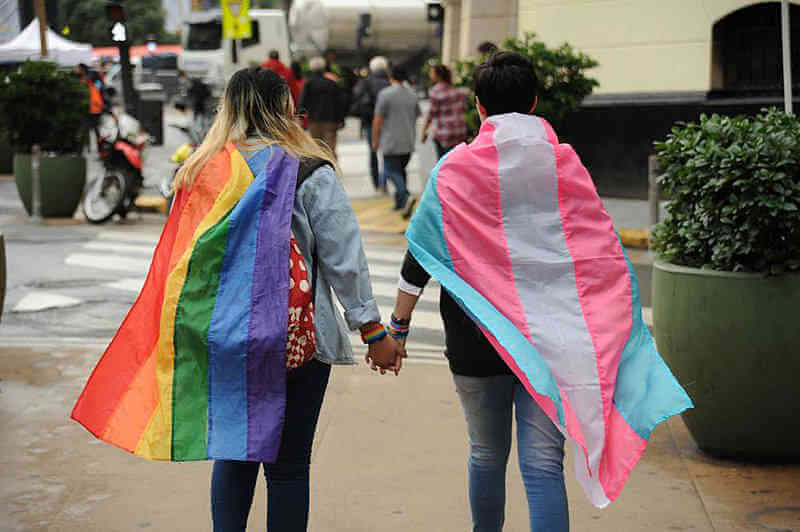A new survey has revealed that more than two-thirds of Americans support LGBTQ nondiscrimination protections and there is now greater support for same-sex marriage than when it became law of the land in 2015, but one demographic has become more homophobic — young Republicans.
A majority of folks in every one of the 50 states favor nondiscrimination protections on the basis of sexual orientation and gender identity, according to the survey, which encompassed more than 54,000 people and was carried out in 2018 by the Public Religion Research Institute, a nonpartisan research organization.
Overall, 69 percent of Americans favor protections in the areas of employment, public accommodations, and housing, which remains largely the same as compared to recent years.
Despite encouraging trends, however, the survey also reflected notable caveats: Support for LGBTQ rights has dropped from 74 percent to 63 percent points among young Republicans and six points among Republicans overall.
Although there is widespread support for nondiscrimination protections, in some states there is a stark gap between the number of people in favor of such protections and the percentage who oppose religious exemptions that allow some people and businesses to refuse service to LGBTQ people. For example, in Alaska 68 percent of folks support nondiscrimination protections but only 42 percent oppose broad religious exemptions.
Cities showed a much greater willingness to oppose religious-driven refusals than rural areas. There has been improvement in several metro areas, including New York City, where 70 percent of residents oppose religious refusal compared to 61 percent in 2015.
And while Republican support for nondiscrimination protections dipped, support among Democrats increased by one percentage point since 2015, to 79 percent. Seventy percent of independents support the protections, marking a three-point drop since 2015.
The survey, recorded three years after marriage equality was enshrined into law, found that 62 percent of Americans say same-sex couples should have the right to get married, which is a 10 percent boost from 2015 and a 26 percent increase from 2007. A whopping 79 percent of Americans between the ages of 18 and 29 support same-sex marriage, compared to less than half of seniors (49 percent).
As would be expected, partisan divides remain in place regarding marriage equality: 77 percent of Democrats are in support of those rights as opposed to only 41 percent of Republicans. Still, from a long-term perspective, Republicans support for same-sex marriage has jumped 21 percentage points since 2011.
A majority of people who identify with major religious groups back same-sex marriage, as well as those who are religious but do not affiliate with any religious groups. Unitarian/ Universalist folks are the most accepting of marriage equality, with 90 percent in favor of it. Eighty percent of Jewish people, 72 percent of Hispanic Catholics, and 71 percent of both white Protestants and white Catholics believe same-sex couples should be able to get married. White Evangelicals and Jehovah’s Witnesses are the least supportive, with 54 and 53 percent of those folks, respectively, in favor of marriage rights.
The survey did not mention President Donald Trump in any of the questions, but the drop in support of LGBTQ rights in some demographics is aligned with the timing of Trump’s presidential campaign launch in 2015. Trump, a Republican, has strong support in his own party, and those followers represented one of just a few demographics that has experienced a decrease in support of LGBTQ rights.
The survey was released less than two weeks after the reintroduction of the Equality Act, a bill that would amend the Civil Rights Act of 1964 and related federal laws to include protections on the basis of sexual orientation and gender identity in the areas of employment, housing, public education, federal funding, public accommodations, credit, and the jury system.
That bill is expected to pass the House of Representatives, but will almost certainly die in the GOP-controlled Senate.



































